Refactory Flins: Renault’s circular economy skills hub
At a round table with the press this month, the Renault Group provided an update on its Refactory plant in Flins, near Paris. The circular economy hub (to be) has been born from business needs that give a glimpse into what may come once electric vehicle sales truly ramp up.
***
At the latest since Renault CEO Luca de Meo has called for the “Renaulution” in late 2020, the French carmaker has been on a course to become less carbon-intense while also putting cost-effectiveness on top of their agenda. Ten new electric models are scheduled by 2025, requiring production lines, batteries, materials, and retrained staff.
Not unlike Renault’s ElectriCity cluster for electric car production in northern France, the carmaker is turning the Refactory in Flins into a centre for the circular economy that may set an example for Renault sites in other parts of the world.
The circular economy in the current form at Renault includes four pillars: Re-trofit, Re-start, Re-energy, and Re-cycle. We will get to all of them, still note that the recycling part may not be what you expect. The Refactory also includes ICE vehicles and will turn to exclusively manufacturing electric vehicles in future.
In any case, transforming the business model into a more closed-loop approach and an actual negative Co2 output by 2030, as Renault targets, “requires many skills that we don’t have as a manufacturer,” Jean-Philippe Billaï, Refactory Director, said during a call with journalists. “So we need partners and investors to finance this ecosystem.”
Increasing EV numbers by retrofitting and refurbishing
Renault has already found a few collaborators. One is Phoenix Mobility which is currently helping the carmaker to deliver Proof-of-Concept to start retrofitting ICE Master vans into all-electric vehicles, as reported. The project is part of the Re-trofit unit at the Refactory that focuses on prolonging vehicle lives.
Turning transporters into electric vans also bears the question of how these will fit into Renault’s existing EV solutions like the Master ZE or Master E-Tech vans – both already come electric.
Renault replied to electrive.com that the retrofit vans would use “as many existing Renault components as possible, to optimise the cost of the kit and reduce development times” but did not go into detail. What was made clear is that the refurbished vans would feature new batteries since French law prohibits used batteries in a retrofit vehicle.
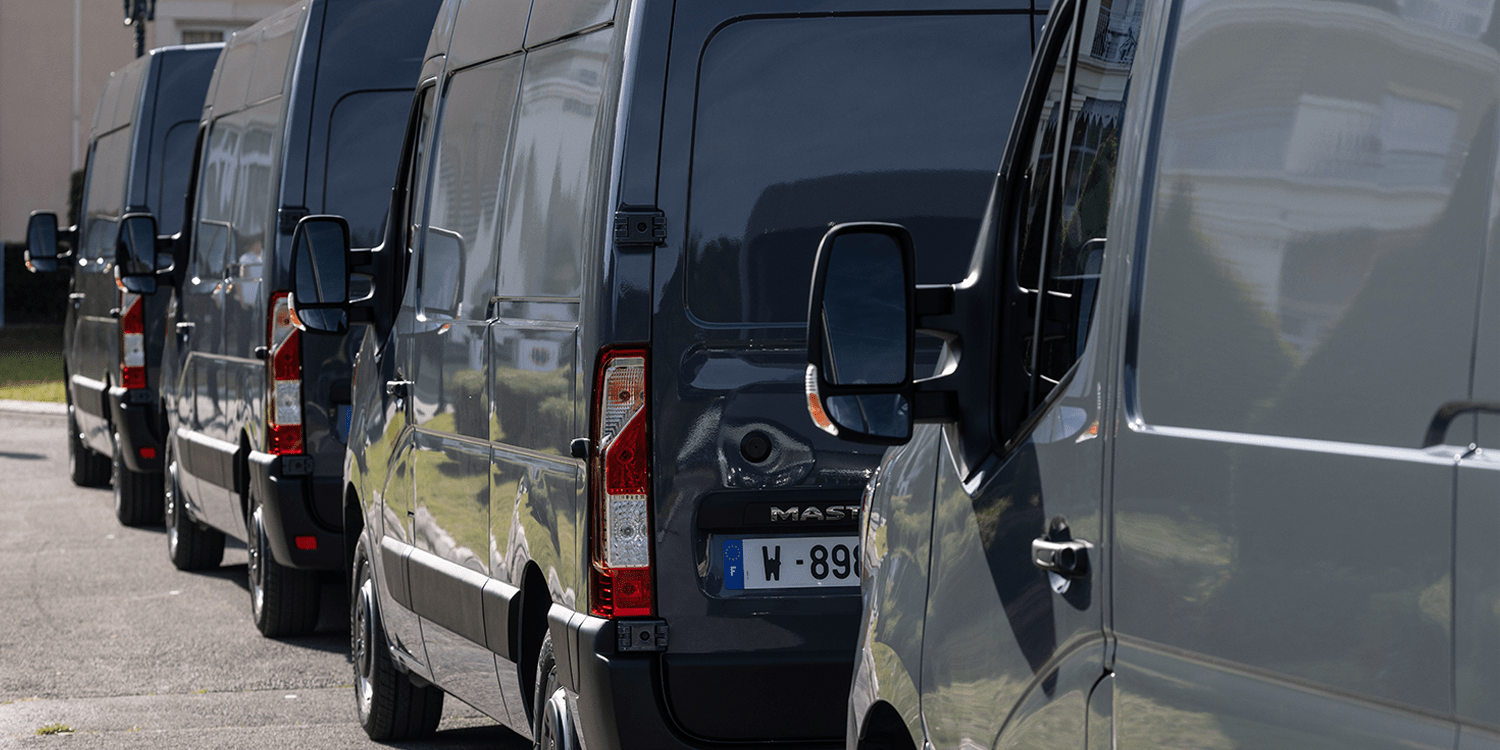
The company also did not disclose the price but said that retrofitting a combustion-powered light commercial vehicle was “a commercially attractive alternative to buying the equivalent new vehicle” in reply to electrive. Prototypes will be ready in 2023, so it was “too early to give technical details,” Renault added.
As for numbers, the Used Car Factory, where staff will retrofit the vans, also allows for repairing other vehicles. The service includes electrified models and ICEs, and Renault revealed that it was also capable of remaking models from different manufacturers like Stellantis and Toyota.
This part of the Refactory is the most advanced so far and was born out of dire need: car dealers in the greater Paris region received too many older vehicles from leasing and rental clients, with no space to store them. Renault now accepts these at Flins and says it has accelerated refurbishing times from 21 to ten days, with eight days as their final target.
Billaï called the used car market “very dynamic and linked to the rental activity.” Taking the example of a Zoe EV, he added that these electric cars sometimes sold before they had even left the Refactory because Renault enables dealers to upload images for online sales as soon as the vehicle leaves the line at Flins.
In 2023, they target refurbishing 45,000 vehicles and have completed 12,000 vehicles opening the factory in September 2021. “We do not detail figures by type of engines,” Renault replied but told electrive.com they would repair 2,700 batteries at the Refactory this year.
Battery recycling is the dent in the circle
Batteries are a crucial issue positioned under Re-energy and not Re-cycle at Flins. As with the cars being returned from Paris, Billaï said the other big question was what to do “with all the batteries that would come back to us”. Renault aims to release ten EV models by 2025 – that’s a lot of batteries and battery material to start with and eventually receive.
At Flins, they will “finally use them in 2nd Life scenarios,” the Refactory Director said. Details were delivered by Amaury Gailliez, Battery Operations Director and Business Director Mobilize – Renault’s leasing service that targets a fleet of one million electric vehicles by 2030 and will also take on 2nd life scenarios.
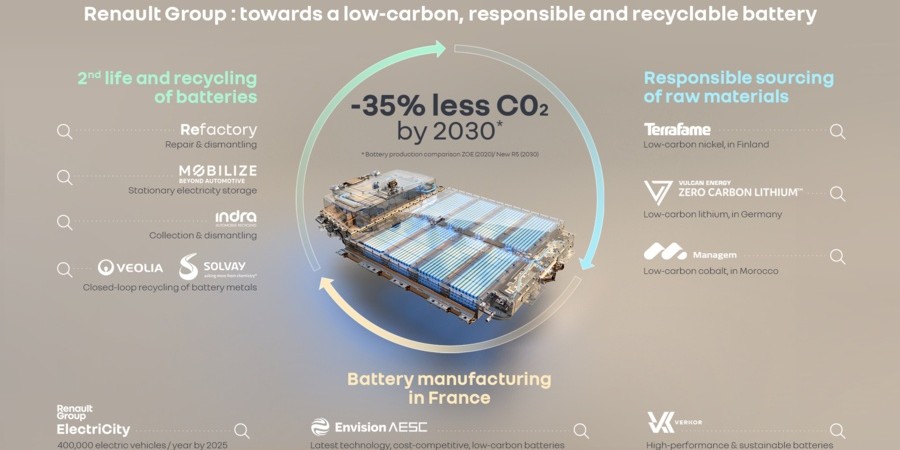
As with the retrofitting part, Renault has enabled start-ups to work in Flins and help Renault to deliver mobile, stationery and retrofit solutions.
For example, there is Betgen assembling what they call “Betteries”, forming the Better Pack, essentially a mobile zero-emission generator. The trolleys hold 1 – 4 modules that stack up to 2 kWh. At present, they use second-life batteries from returning Kangoo and Fluence vehicles. One car battery makes about six Better Packs, and Renault says it also reuses other parts were possible.
For batteries coming back to Renault, there is, of course, also the Zoe. The carmaker launched the small electric car in 2012, back then with battery leasing only, and these batteries are now ten years old at best. “Thus, most Zoe batteries are still powering the vehicles as their capacity remains high,” so Renault. Talking to electrive.com, they did confirm “that a second life use is planned once the batteries come back, for example, in the Advanced Battery Storage system.”
Said ABS is already installed at Flins. The presentation showed 15 containers bearing labels from more Renault partners such as Nidec. Each holds 1 MWh in second-life batteries and is dedicated to after-sales, e.g. balancing the grid for the utility Eter.
But what happens to the batteries that have outlived their use as energy storage? Renault calls the recycling step the third life. However, Battery Operations Director Gailliez had to admit that they outsourced the actual material recycling. “For environmental reasons, these chemical processes are located at other partners,” he said, leaving the impression of a gap in the otherwise closed loop. As reported, Solvey and Veolia are the two partners looking into battery recycling for Renault.
Renault reuses what they can
With battery recycling essentially being outsourced, the Re-cycle part of the Refactory concerns recycling car parts. This can be any vehicle, and Renault said it was moving the Choisy-le-Roi plant to Flins to integrate components / spare parts refurbishment at the site. The transfer is almost finished, with mechatronic repairs coming in 2023.
Lastly, Renault is establishing the Re-start sector. Here, the staff retools machines and has managed 100 robots so far, thus “basically adjusting machines to the new productions,” according to Refactory Director Billaï. It is another key to getting factories ready to make electric vehicles more cost-effectively and in high numbers. Renault Group is gearing up to build mostly electrified vehicles by 2030 (likely including hybrid cars).
This transformation also needs retraining, as mentioned, and Flins is becoming a re-skilling hub for Renault and external partners. Renault said they so far, 300 retrained employees and received interest from other institutions leading them to launch an academic training course on the circular economy this March.
When we last asked whether Flins would become a model for a broader Renault integration, Billaï explained that any Refactory would serve a 300-kilometre radius, i.e. Flins’ proximity to Paris, “so you would need to duplicate the model to other cities.”
Correspondingly, he revealed that apart from Flins and the recently opened Refactory in Sevilla in Spain, Renault plans to install similar circular economy projects in Turkey, South America and Portugal.
Source: press call and round table.

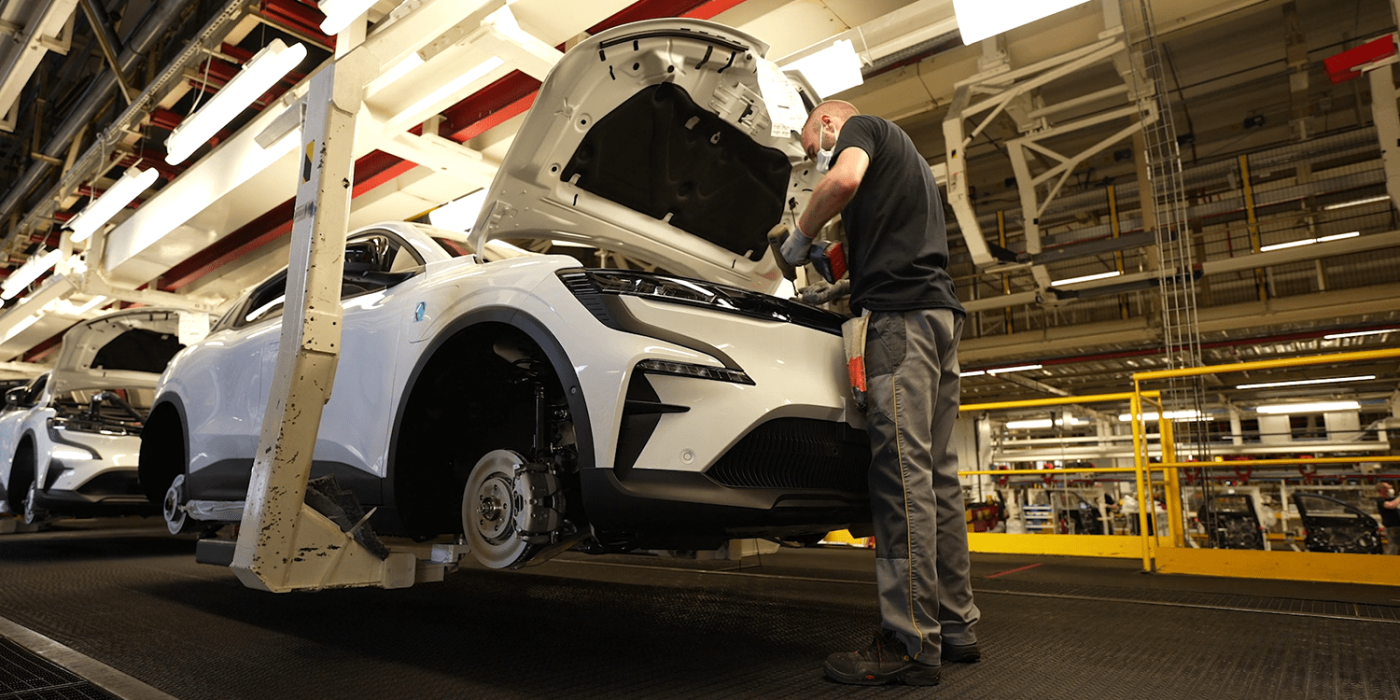

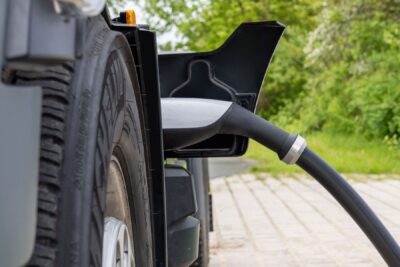
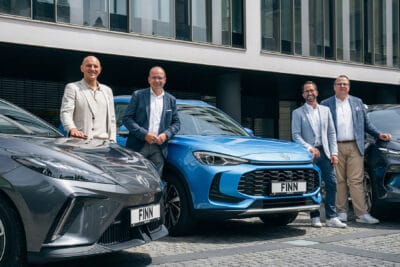
0 Comments